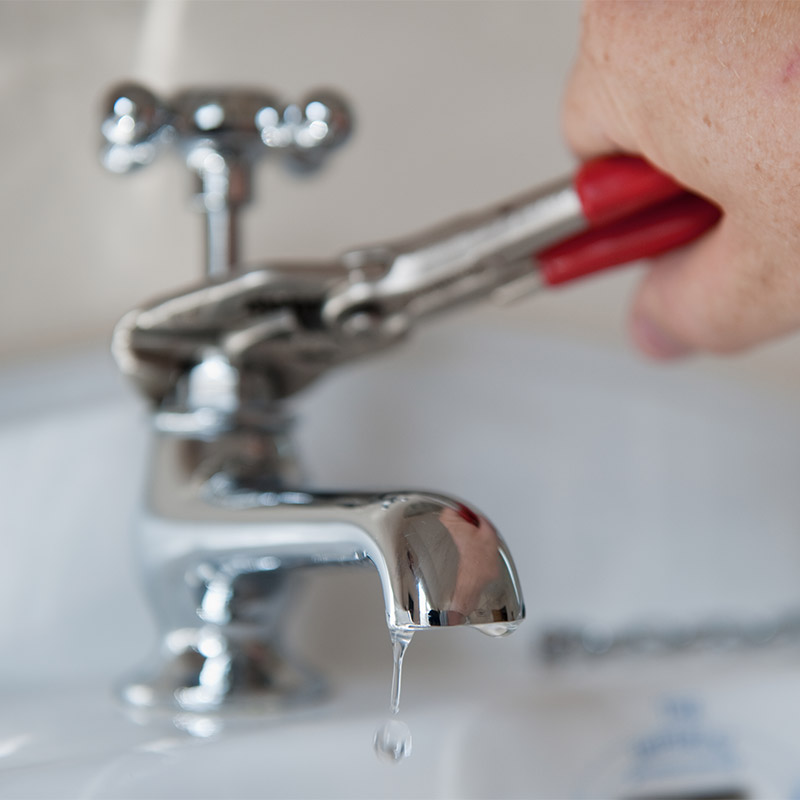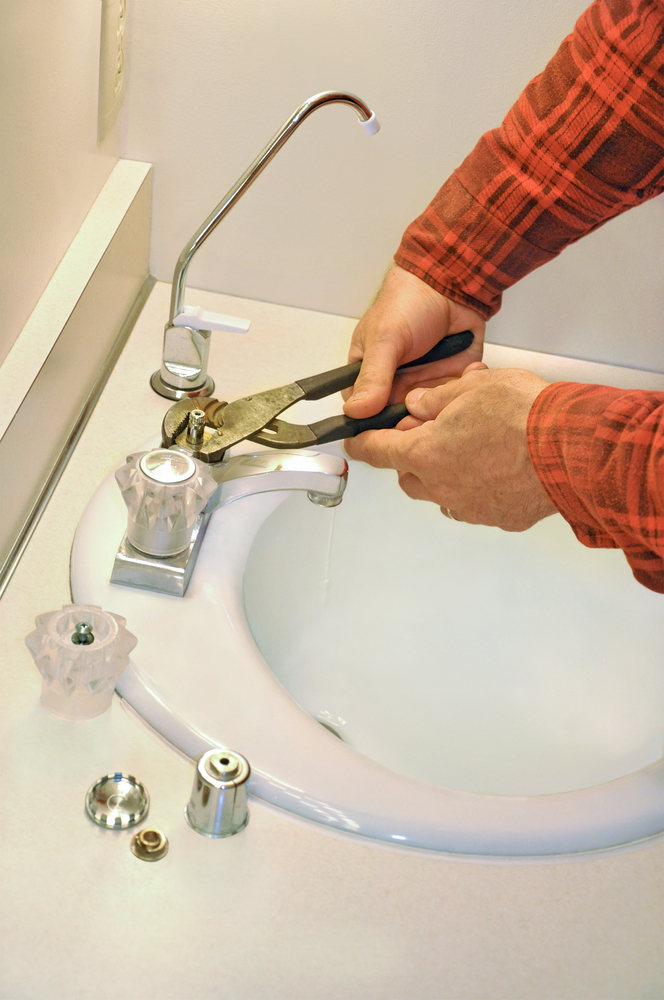Our Reasons Behind Fixing a Faulty Faucet
Our Reasons Behind Fixing a Faulty Faucet
Blog Article
They are making several good annotation on the subject of Why Is It Important To Fix Your Leaking Tap/Faucet? as a whole in this post underneath.

Leaking faucets could feel like a minor inconvenience, but their influence exceeds simply the inconvenience of the sound. From drainage to sustaining unneeded monetary expenses and health and wellness threats, overlooking a leaking tap can bring about numerous consequences. In this write-up, we'll delve into why it's vital to address this common family concern quickly and efficiently.
Wastage of Water
Ecological Impact
Leaking taps add significantly to water waste. According to the Epa (EPA), a solitary tap trickling at one drip per second can throw away more than 3,000 gallons of water each year. This not just pressures water sources however additionally impacts ecological communities and wild animals depending on them.
Step-by-Step Guide to Dealing With a Dripping Faucet
Tools Called for
Prior to trying to deal with a leaking tap, gather the necessary devices, consisting of an adjustable wrench, screwdrivers, substitute parts (such as washers or cartridges), and plumber's tape.
Common Tap Issues and Their Solutions
Determine the kind of tap and the details concern triggering the drip. Common troubles include worn-out washers, rusty shutoff seats, or defective O-rings. Describe maker directions or online tutorials for detailed assistance on repair work.
Financial Prices
Boosted Water Costs
Beyond the ecological impact, trickling taps can blow up water costs substantially. The accumulated waste gradually converts into greater utility expenditures, which might have been avoided with timely repair work.
Potential Home Damage
Additionally, long term leaking can cause harm to components and surface areas surrounding the tap. Water accumulation can cause discoloration, deterioration, and also architectural problems if left ignored, causing added repair service prices.
Health Concerns
Mold And Mildew and Mildew Growth
The continuous existence of moisture from a leaking tap develops a suitable atmosphere for mold and mildew and mildew growth. These fungi not only compromise indoor air top quality but likewise pose health threats, particularly for individuals with respiratory problems or allergic reactions.
Waterborne Illness
Stationary water in trickling faucets can become a breeding place for germs and other pathogens, enhancing the threat of waterborne conditions. Contaminants such as Legionella microorganisms thrive in stationary water, potentially leading to significant health problems when ingested or breathed in.
Do it yourself vs. Expert Repair work
Benefits and drawbacks of DIY Fixing
While some might attempt to fix a dripping tap themselves, DIY fixings come with their own collection of difficulties. Without proper expertise and tools, DIY attempts can worsen the issue or result in incomplete repair work, lengthening the trouble.
Advantages of Hiring a Specialist Plumber
Hiring a specialist plumber ensures that the underlying root cause of the leaking tap is attended to successfully. Plumbing professionals have the experience and tools to identify and fix tap concerns efficiently, saving time and minimizing the threat of more damages.
Ecological Responsibility
Private Contribution to Preservation
Taking obligation for repairing dripping taps lines up with wider initiatives toward water conservation and ecological sustainability. Every individual's activities jointly make a significant effect on protecting priceless sources.
Lasting Living Practices
By prioritizing prompt repair work and adopting water-saving behaviors, individuals contribute to sustainable living techniques that profit both present and future generations.
Safety nets
Routine Upkeep Tips
To avoid leaking taps, perform regular upkeep such as cleaning aerators, checking for leaks, and replacing damaged parts immediately. Additionally, think about mounting water-saving tools or updating to extra reliable components.
Relevance of Prompt Repair Works
Attending to leaking taps as quickly as they're seen avoids further water wastage and possible damages, ultimately saving both water and cash in the long run.
Impact on Building Value
Perception of Well-Maintained Building
Keeping a residential property in good condition, including attending to maintenance issues like dripping taps, improves its viewed value and charm amongst prospective customers or occupants.
Impact on Resale Value
Qualities with well-maintained plumbing fixtures, including taps, command greater resale values in the realty market. Attending to leaking taps can add to a positive impact during building assessments and arrangements.
Verdict
Addressing a trickling faucet goes beyond simple convenience; it's a necessary step towards conserving water, decreasing financial expenses, and guarding health and wellness and building. Whether with DIY repair services or expert support, doing something about it to repair trickling faucets is a small yet impactful means to advertise accountable stewardship of resources and contribute to a healthier, much more lasting future.
How to Fix a Leaky Faucet: Step-by-Step Repair Guide
A leaky faucet may seem like a simple annoyance, but if it's not fixed promptly, that leak could cost hundreds to potentially thousands. From water damage to mold, mildew, and high water bills, even a tiny leak can be catastrophic if left unattended. Damage like this can even affect the overall value of your home, so it's important to take the right approach for leaky faucet repair. You may need the help of a plumber in some cases, but we've got a few tips you can try on how to fix a leaky faucet before calling the pros.
Four Faucet Types
When you're learning how to fix a leaky faucet, the first step is knowing what kind of faucet you're working with! There are four common types.
Cartridge Faucets
Cartridge faucets come in one- or two-handled varieties. In one-handled cartridge faucets, hot and cold water combines in a single cartridge. In the two-handled versions, hot and cold water are controlled separately and mixed in the faucet.
Ball Faucets
Ball faucets have a single lever you push up and down to adjust the pressure and rotate to change the temperature. A slotted metal ball controls the amount of water allowed into the spout.
Compression Washer Faucets
They're the oldest type of faucet, but they're still used in many homes — especially older ones. Compression faucets have two separate handles that, when turned, raise or lower the washer that seals a water valve. This valve stops water from flowing through the faucet when it is turned off.
Disc Faucets
Disc faucets rarely need to be repaired due to their maintenance-free design. The water flow is controlled by two discs — the upper one raises and lowers against a fixed lower disc, creating a watertight seal. If your disc faucet starts leaking, you may need to replace the seals or clean residue buildup from the inlets.
Fixing a Leaky Faucet
Step 1: Turn Off the Water
Whether you're learning how to fix a leaky bathtub faucet or how to fix a leaky kitchen faucet, always turn off the water supply to your working area when you're fixing a leak. The last thing you want is a flood added to your list of things to fix.
Look for the shutoff valves below your sink or around the tub and turn them clockwise to stop the water flow. If your faucet doesn't have shutoff valves, you may need to turn off the water for the whole house. Check to make sure it's off by turning the faucet on. If nothing comes out, you're ready to start the repair.
Step 2: Take Apart the Faucet
How you disassemble your faucet depends on the type of fixture you have. You can use a flathead screwdriver to remove the caps on top of the handle or handles for cartridge and compression faucets. Inside, you should see handle screws. Unscrew these with a screwdriver to remove the handle.
Disc- and ball-style faucets will typically have an inlet screw near the handle, and removing that will reveal the interior of the faucet.
Detach the Valve Stem
For cartridge- and compression-style faucets, you'll see the inner valve stem or cartridge once you remove the faucet handles. If you have a compression faucet, unscrew the brass valve stem. If you have a cartridge faucet, pull out the cartridge. If your cartridge has been in place for a while, it may require some tools or extra force to remove it due to mineral deposits.
Examine and Replace Parts
Once you've removed the parts, check them out to confirm what needs to be replaced. You may see corroded rubber washers, O-rings, stems, or cartridges. On a ball-style faucet, check the seats and springs for damage.
If you need to repair a leaky disc faucet, check the inlet and seals on the lower disc.
Once you determine what parts must be replaced, visit your local hardware store. Bring the damaged parts with you to ensure you can purchase the correct components to replace them.
Clean Valves and Faucet Cavity
If you've removed a stem or cartridge, you may notice mineral buildup in the faucet's threads. Use white vinegar to clean the valve seat by soaking it for a few minutes, then scrub it away with a soft toothbrush and rinse with warm water. You can also clean the interior of the faucet in the same way.
Reassemble the Faucet
Once your faucet is cleaned and the required parts have been replaced, it's time to reassemble it. Put the pieces back together and slowly turn the water supply back on. Doing this slowly is crucial because too much initial water pressure can damage the new hardware you've just installed.
https://homewarranty.firstam.com/blog/how-to-fix-leaky-faucet

I was brought to that editorial about Should I Repair or Replace a Leaky Faucet? from an associate on another web blog. Loved our content? Please quickly share it. Let another person find it. Many thanks for going through it.
Report this page